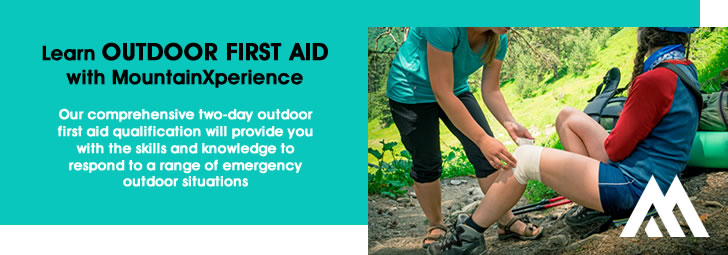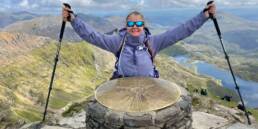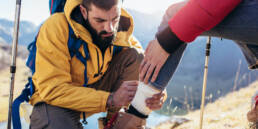Photo © Brady Wakely
Dogs are very welcome and a common sight on Snowdon’s paths but remember as well as being a physical challenge for you it may be a much greater challenge for your pet so be sure they’re up for the job if you want to avoid having to carry them down.
Much of Snowdon’s lowers slopes is farmland and you’ll see sheep grazing at all times of the year so it’s vital that you keep dogs under close control. Please also consider ground nesting birds which you may not easily be able to see.
If you’re not 100% confident about how your dog behaves around livestock then you must keep it on a lead at all times. Sheep worrying is a real problem for farmers. It’s a dog’s natural instinct to chase but even if a dog doesn’t actually catch a sheep, the stress of being chased can cause sheep to die or pregnant ewes to miscarry. Sheep fleeing from dogs are often killed or injured in the process.
Sheep worrying is a criminal offence and farmers are legally entitled to shoot dogs that are endangering their sheep. This is a situation that nobody wants and is easily avoided by keeping your dog under close control.
The advice below is taken from The Countryside Code and sums up nicely how you should behave with dogs. You can also find more information on the Dog Walking Code from Natural Resources Wales.
Always keep dogs under control and in sight
The countryside, parks and the coast are great places to exercise your dog but you need to consider other users and wildlife.
Keep your dog under effective control to make sure it stays away from wildlife, livestock, horses and other people unless invited. You should:
- always keep your dog on a lead or in sight
- be confident your dog will return on command
- make sure your dog does not stray from the path or area where you have right of access
Always check local signs as there are situations when you must keep your dog on a lead for all or part of the year. Local areas may also ban dogs completely, except for assistance dogs. Signs will tell you about these local restrictions.
It is good practice wherever you are to keep your dog on a lead around livestock.
On Open Access land and at the coast, you must put your dog on a lead around livestock. Between 1 March and 31 July, you must have your dog on a lead on Open Access land, even if there is no livestock on the land. These are legal requirements.
A farmer can shoot a dog that is attacking or chasing livestock. They may not be liable to compensate the dog’s owner.
Let your dog off the lead if you feel threatened by livestock or horses. Do not risk getting hurt protecting your dog. Releasing your dog will make it easier for you both to reach safety.
Dog poo – bag it and bin it – any public waste bin will do
Always clean up your dog’s poo because it can cause illness in people, livestock and wildlife.
Never leave bags of dog poo around, even if you intend to pick them up later. Deodorised bags and containers can make bags of dog poo easier to carry. If you cannot find a public waste bin, you should take it home and use your own bin.





